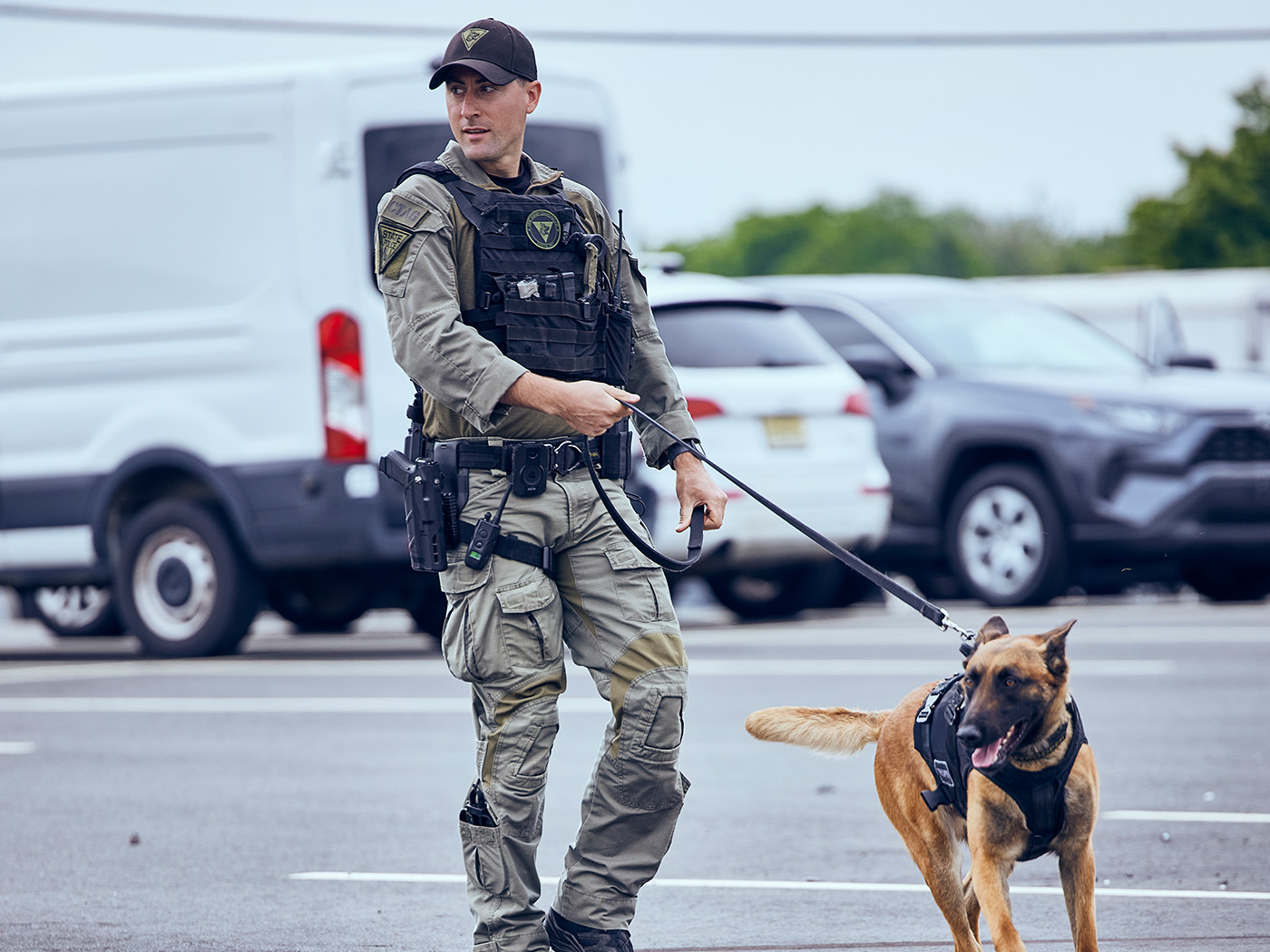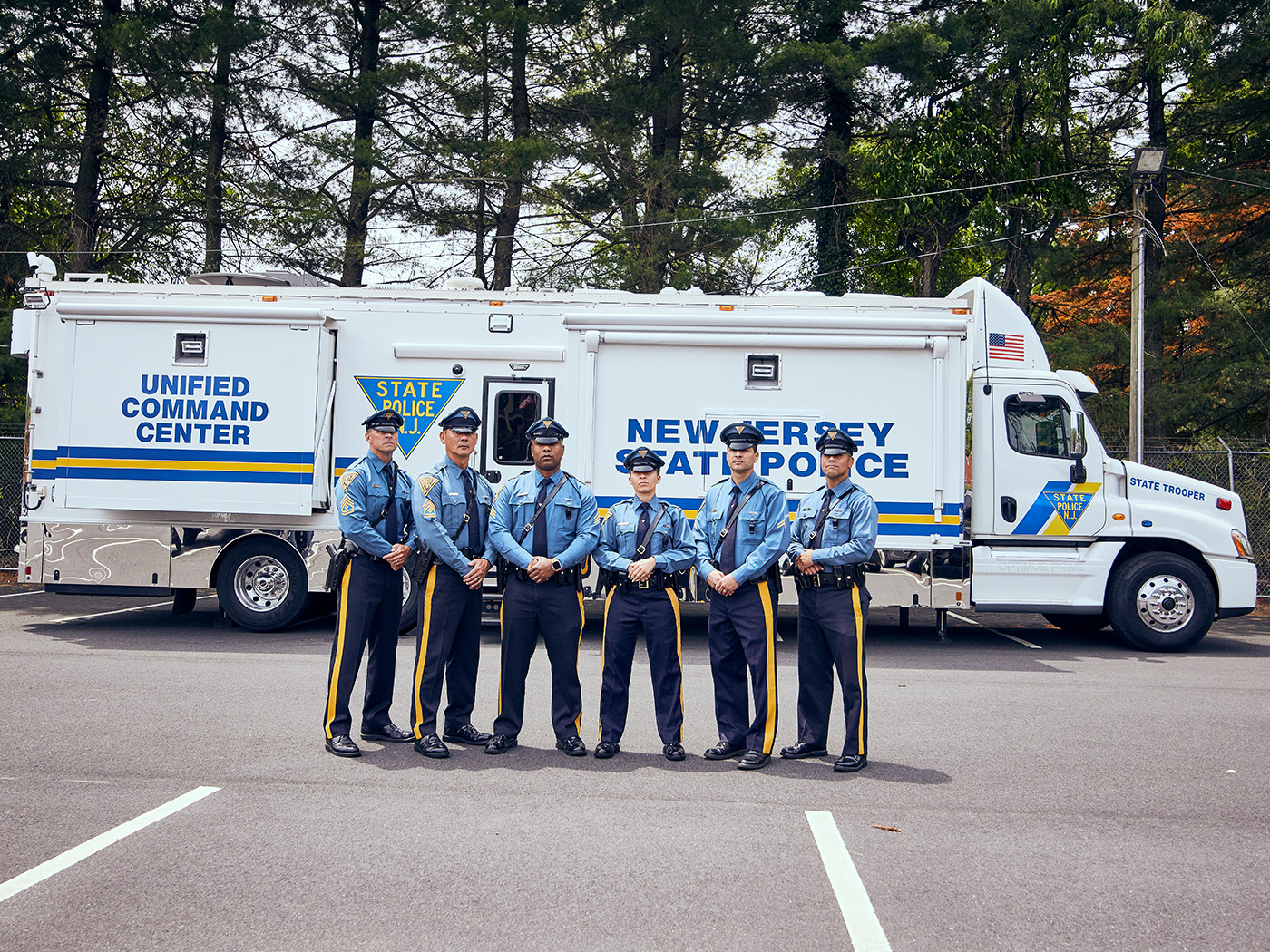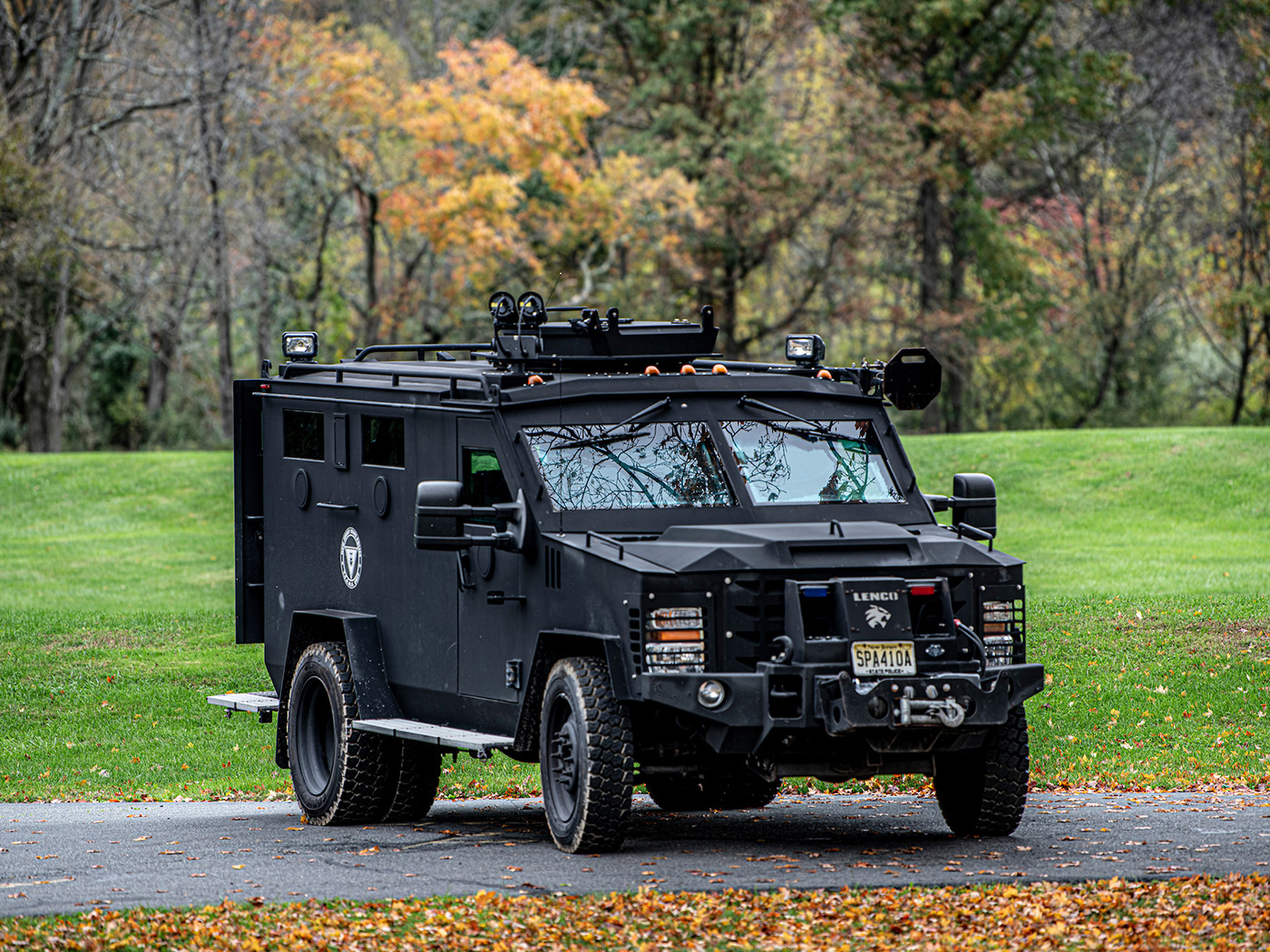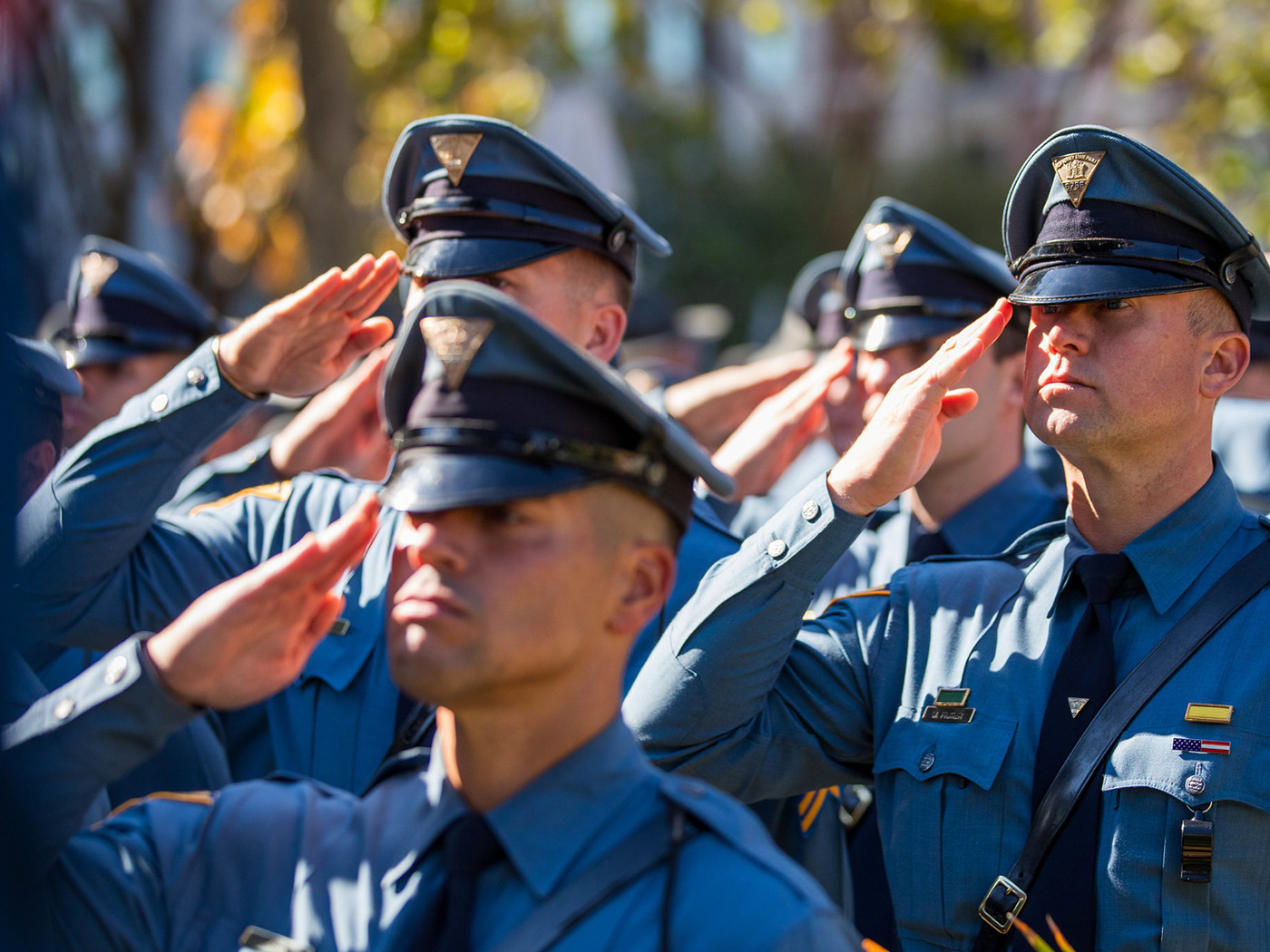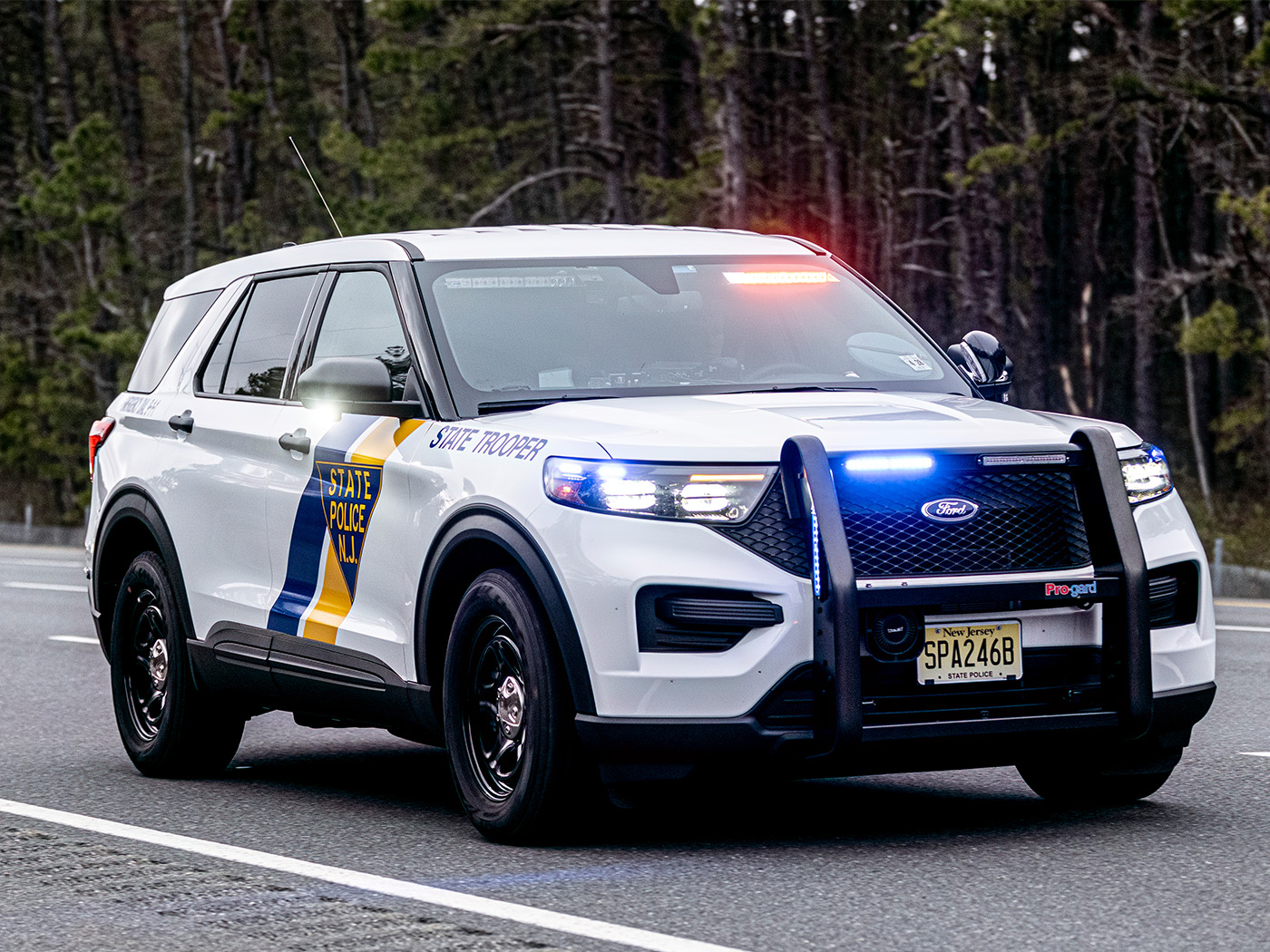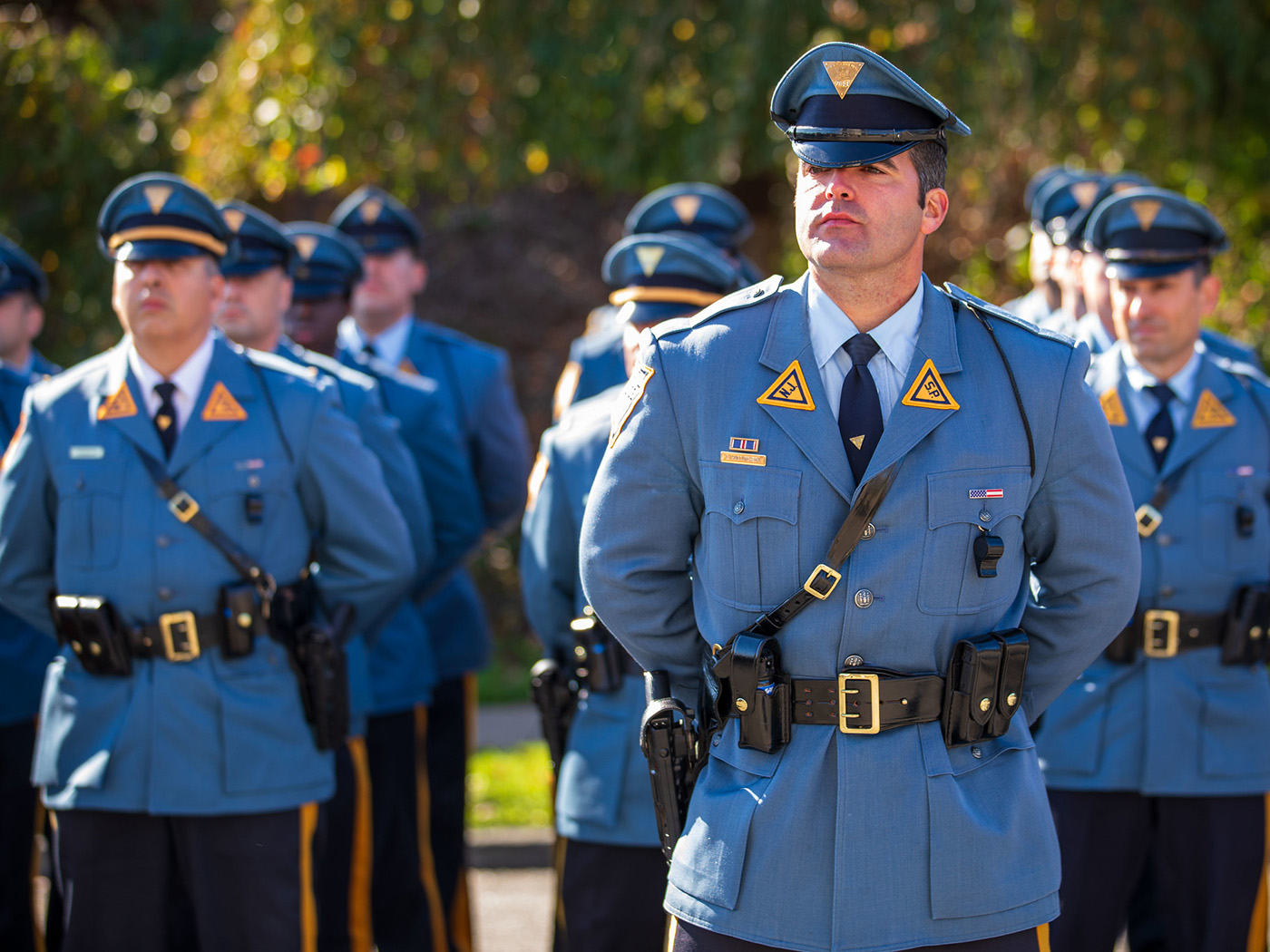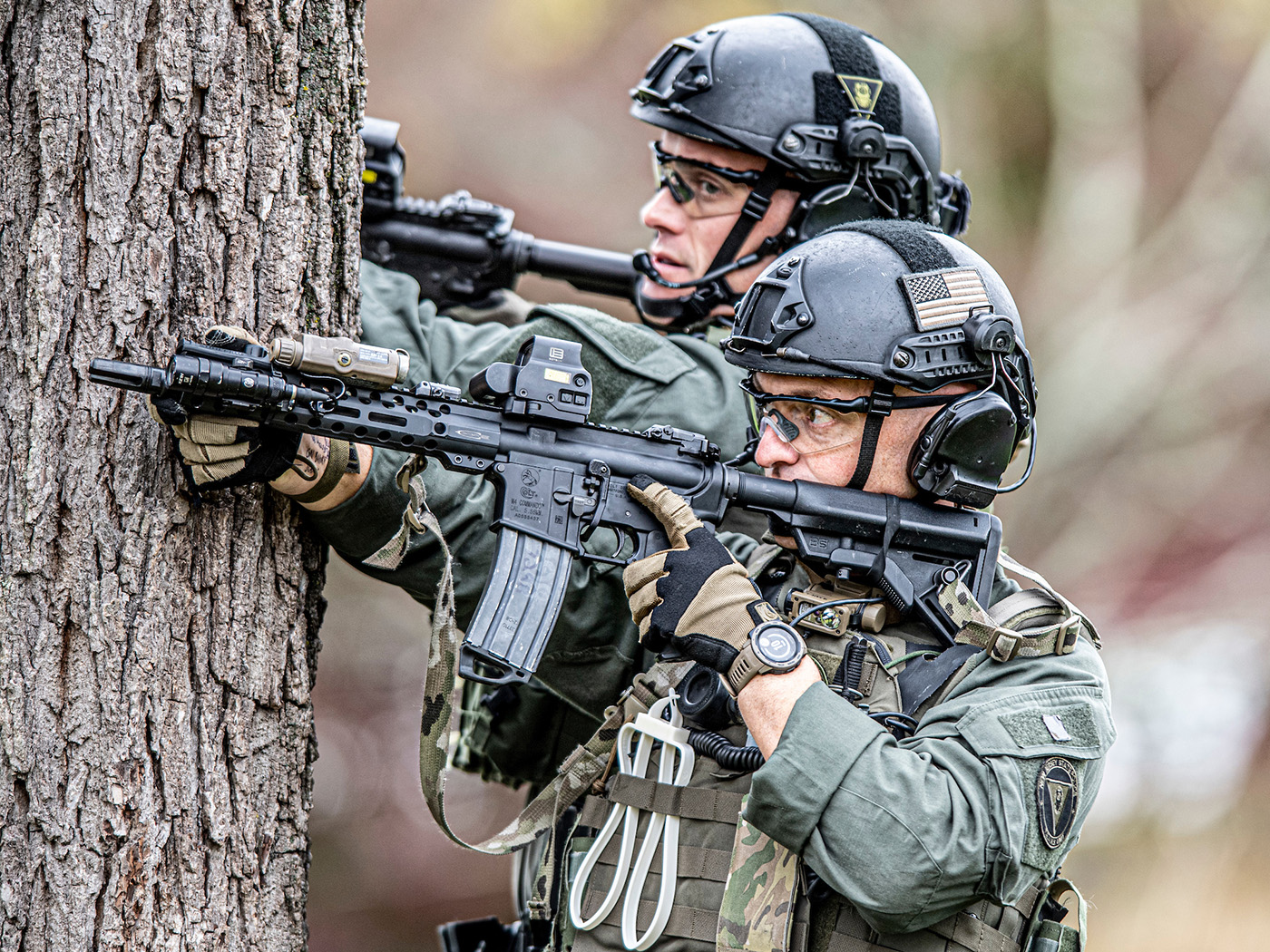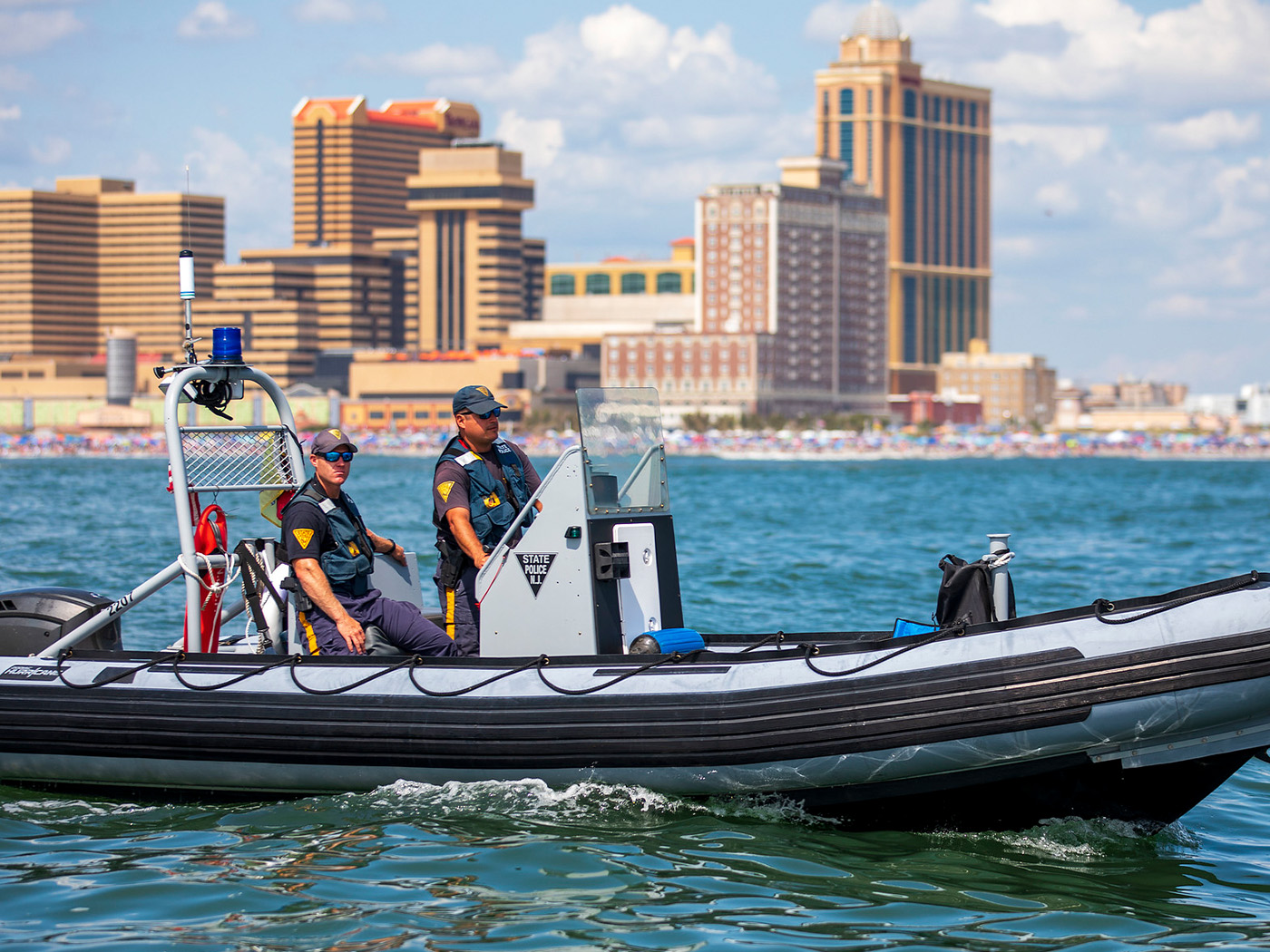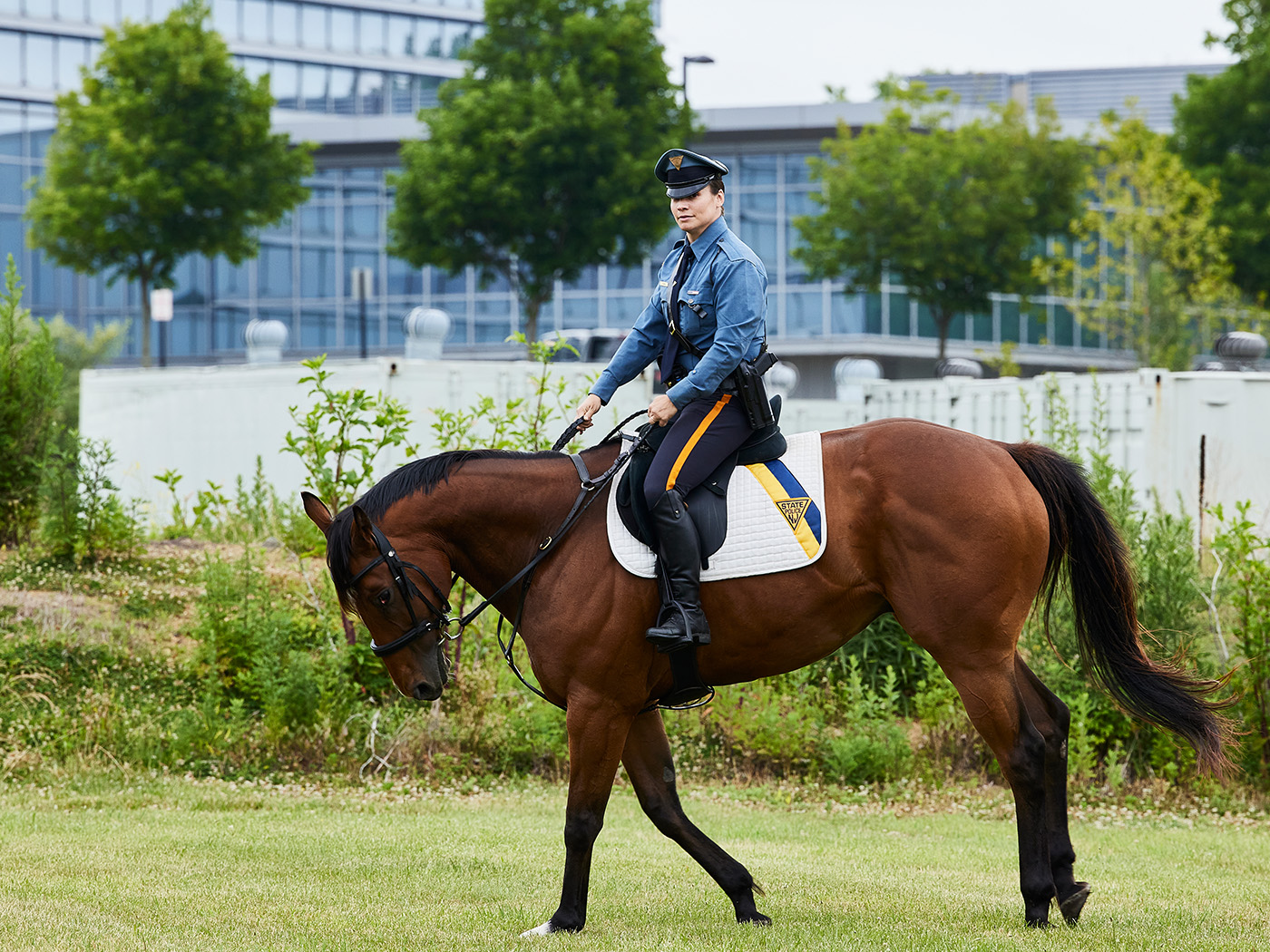Applications now open: Accepting applications March 4th to May 1st, 2025
Please refer to the following link for Trooper Youth Week application:
- All Applications are to be completed online
2025 Trooper Youth Week Dates:
- 117th Class - July 14th through July 18th
- 118th Class - July 28th through August 1st
Trooper Youth Week
Trooper Youth Week is a residential youth education program developed by the New Jersey State Police. This program presents simulated law enforcement programs for male and female students who have completed their junior year and are entering their senior year of High School. Additionally, sophomores who are currently 17 years of age may also be eligible. The applicant must not have reached their 18th birthday prior to the graduation date of their Trooper Youth Week class.
The week’s activities include lectures and presentations covering many facets of police work and criminal justice. Participants will be exposed to a disciplined quasi-military environment, including military drill in combination with structured fast moving programs of classroom activities, lectures, films, practical exercises and physical training, simulating the NJSP recruit training experience.
The program emphasizes courtesy, professionalism, respect and teamwork. Additional presentations will include strategies for anger management, conflict resolution and cultural diversity.
- History and functions of the New Jersey State Police
- Crime scene investigation techniques
- Motor Vehicle Law and Safety
- How to respond assertively in communicating their individual choices
- How laws concerning alcohol and other drug related behavior affect young people
Please send all questions or comments to trooperyouth@njsp.gov
Trooper Youth Week Documentation
Please use links below for more information:
It shall be the mission of the New Jersey State Police Trooper Youth Week program to educate, encourage, and motivate the youth of this State to pursue careers in law enforcement, law enforcement-related fields, or other public service. The program is designed to empower State Police instructors to inspire high moral and ethical standards, and to foster a vision where service to others takes priority over self-interest.
The first Trooper Youth Week summer program was initiated on June 28, 1965 at the New Jersey State Police Training Academy, Sea Girt, NJ. The New Jersey State Police saw an opportunity to develop a summer program to attract high school students to the New Jersey State Police. The initial program was developed by the Safety Education Bureau, which was responsible for the coordination of the crossing guard, safety patrol and poster programs associated with the elementary educational levels. The New Jersey State Police had not to this point targeted the high school educational level as prospective applicants. The New Jersey State Police minimum educational requirement at this time was a high school diploma. The Trooper Youth Week summer program was conceived as a means of attracting the high school age youth of our state. They would be indoctrinated into the specific academic and physical requirements necessary for a career in law enforcement. This summer program would also serve to provide a true understanding of the many career opportunities within the New Jersey State Police. The Trooper Youth Week summer program still contains many of the core components from the first program initiated in 1965.
This summer program continues to attract competent, dedicated, moral, and diverse applicants from all areas of New Jersey. The mission of the New Jersey State Police has grown immensely since the initial Trooper Youth Week summer program in 1965. The format of the Trooper Youth Week summer program has been expanded to adequately reflect these same substantive changes. The typical summer weeklong residential program is inclusive of a disciplined quasi-military environment supervised by the enlisted members of the New Jersey State Police. This program’s daily block schedule of military drill, structured fast moving classroom programs, practical exercises and physical training serves to simulate a true recruit training experience. The program’s core values emphasize integrity, honesty, courtesy, professionalism, human dignity and respect, and teamwork.The student shall submit an essay describing leadership traits they consider important and how these attributes relate to the law enforcement profession. The essay may meet or exceed 500 words but shall not be less than the 500 word minimum. Failure to submit the required essay may result in non-selection:
- Students must have successfully completed their junior year of High School (11th grade) and have satisfied the requirements to enter their senior year (12th grade). Sophomores who are currently 17 years of age may also be eligible. Students must not have reached their 18th birthday prior to the graduation date of their Trooper Youth Week class.
- Good reputation and sound moral character
- Must be recommended by High School Principal / guidance department, law enforcement agency, a community representative, or religious leader
- Must be in good academic standing
- Must be able to participate in physical fitness activities
- Must be able to participate in a structured well-disciplined programs
- No smoking or other tobacco products permitted
It is the policy of the Academy that all Trooper Youth attendees be neat, clean, well-groomed, and present a professional appearance. To achieve the intent of the policy, reasonable grooming regulations have been established. The regulations take into consideration uniformity, neatness, safety, and the quasi-military nature of the Division of State Police.
Personal Grooming
A. Unisex Standards
1. Clothing
a. Conservative clothing will be worn
b. Pants will be worn at proper business length
c. Low cut jeans and/or pants that expose undergarments are NOT PERMITTED
d. Crew style tee-shirts only. Low-cut neck lines and high-cut shirts above the waistline are NOT PERMITTED
e. Clothing will not have any offensive print (e.g., words, gestures or any other print that is inappropriate)
2. Jewelry
a. All jewelry which detracts from the professional appearance of a Trooper Youth, or which may constitute a safety hazard, is not permitted
b. No jewelry of any kind shall be worn during TYW. This includes jewelry below the shoulders (e.g., belly rings)
c. Watches may be worn at authorized times
d. NO jewelry or watches shall be worn during physical training
3. Footwear
a. No flip flops, slides, sandals, high heels, or open-toed shoes
4. Fingernails
a. Fingernails shall be cleaned and trimmed. Nails shall not extend beyond the tips of the fingers
b. Fingernail polish, if worn, shall be clear
B. Trooper Youth Males
1. Hair Shall:
a. Be neatly trimmed, combed, or brushed
b. Be cut to present a tapered appearance and, when combed, shall not fall over the ears or eyebrows, or extend over the shirt or coat collar when standing with the head in natural posture
c. Not interfere with the proper wearing of any authorized uniform headgear
d. Coloring, if used, must appear natural
2. Facial hair:
a. Shall be properly shaven at all times
b. No mustache, beard, or sideburns
C. Trooper Youth Females
1. Hair:
a. The length, bulk, or appearance of natural hair shall not be excessive, ragged, or unkempt
b. Shall be neatly groomed
c. Shall not be worn longer than the bottom of the shirt or coat collar at the back of the neck when standing with the head in the normal posture
d. Shall be groomed in front so that it does not fall below the band of a properly worn uniform hat
e. May be worn slightly over the ears, but in no case shall the bulk or length of the hair interfere with the proper wearing of authorized uniform headgear
f. Ponytails or platted hair are not permitted
g. A bun or twist is permitted on the top back of the head provided it is worn in a neat manner and does not interfere with the wearing of uniform headgear
h. No ribbons or ornaments shall be worn in the hair, except for neat inconspicuous bobby pins or conservative barrettes which blend with the hair color
i. Coloring, if used, must appear natural
j. The wearing of a wig or hair piece is permissible
NOTE: If worn, it shall conform to the standards set forth in this procedure.
2. Brassieres that provide adequate support shall be worn
Please see sample schedule as reference for trooper youth week program.







